CLOUD 9
By Caryl Churchill
Directed by Cristabel Sved
3rd Year graduating Production
Actors’ Centre Australia
Cast: Izak Arwan, Jayden Castle, Patrick Gandin, Oliver MacFayden, Saphira Moran, Emily Sinclair, Rose Stunzner
By Caryl Churchill
Directed by Cristabel Sved
3rd Year graduating Production
Actors’ Centre Australia
Cast: Izak Arwan, Jayden Castle, Patrick Gandin, Oliver MacFayden, Saphira Moran, Emily Sinclair, Rose Stunzner
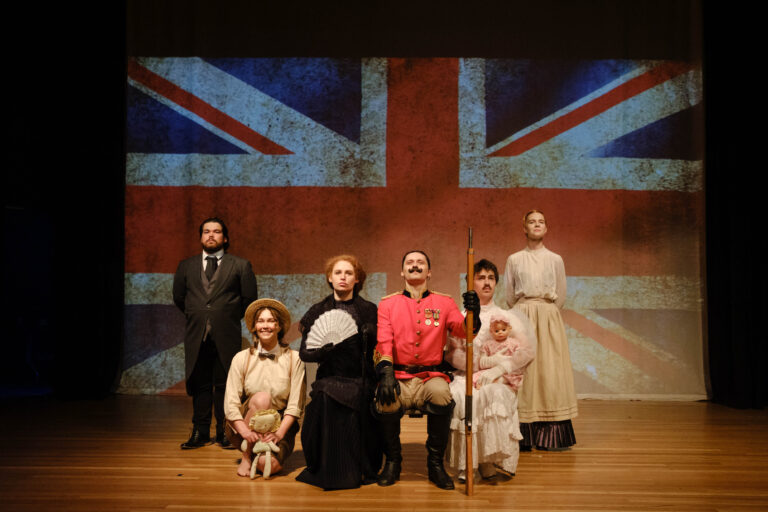
Photography: Clare Hawley
Cristabel is a truly passionate, committed and dedicated educator. Her love of the craft and her generous and insightful delivery to students of the skills required to build a career in this industry, drive all she does. She brings a wealth of professional experience to her role as an arts practitioner, working with immense understanding of student needs, their capacities and challenges, and has also practised for many years as a director of professional actors Australia-wide. Under her expert tutelage, countless aspiring actors have gained a detailed understanding of their range and power. This could not have happened without her wise and thorough guidance, and her detailed, rigorous attention to the individual qualities and needs of each actor.
Adam Cook – Head of Acting, Actors’ Centre Australia
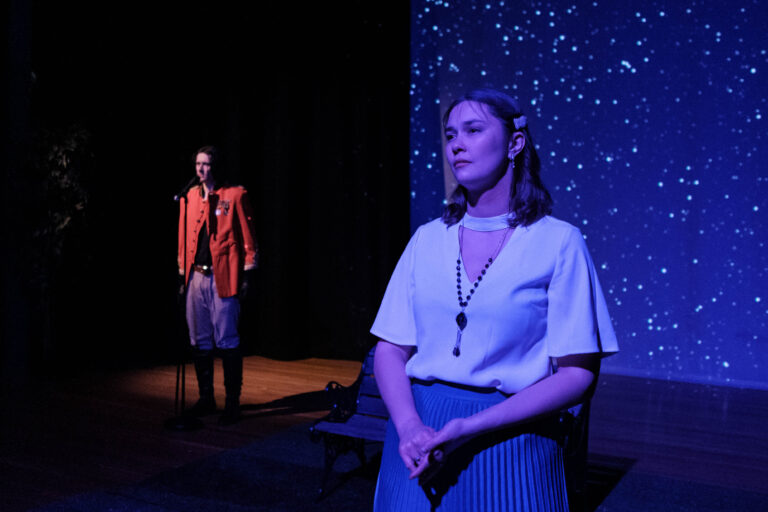
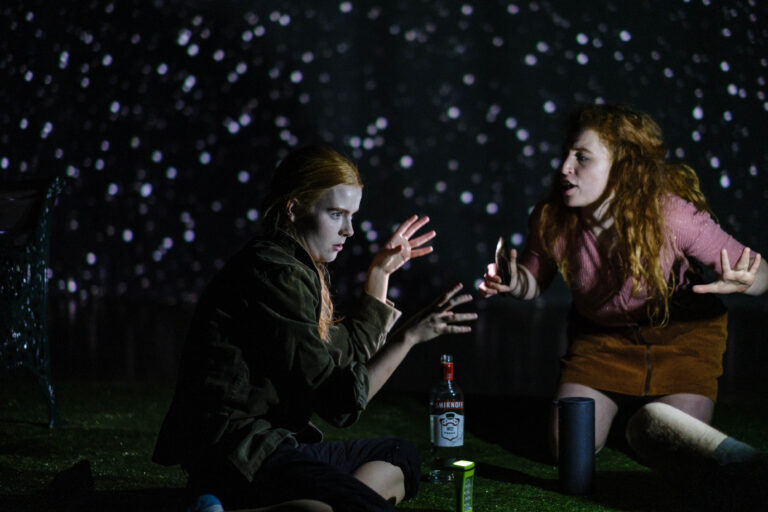
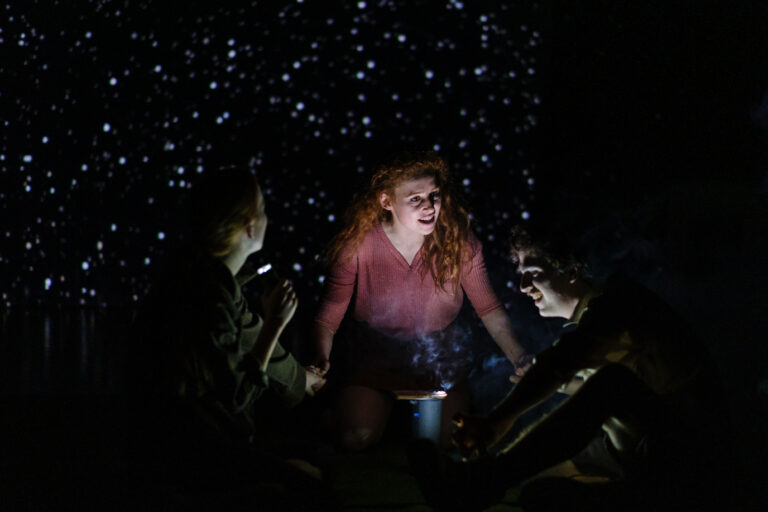
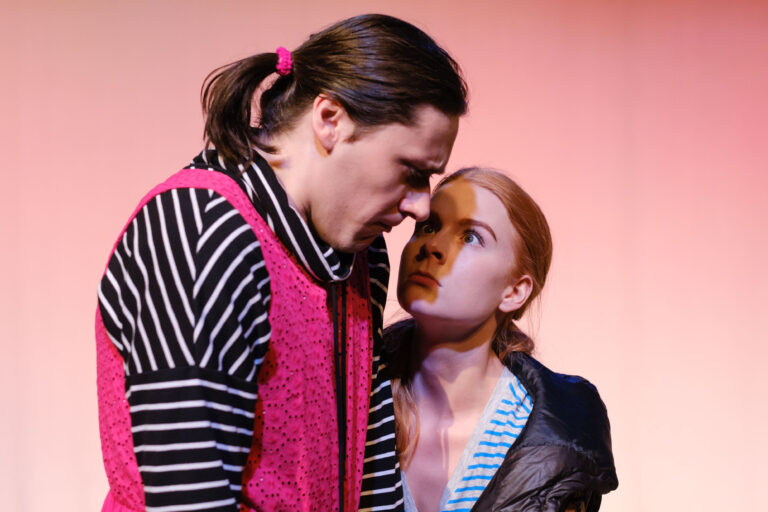
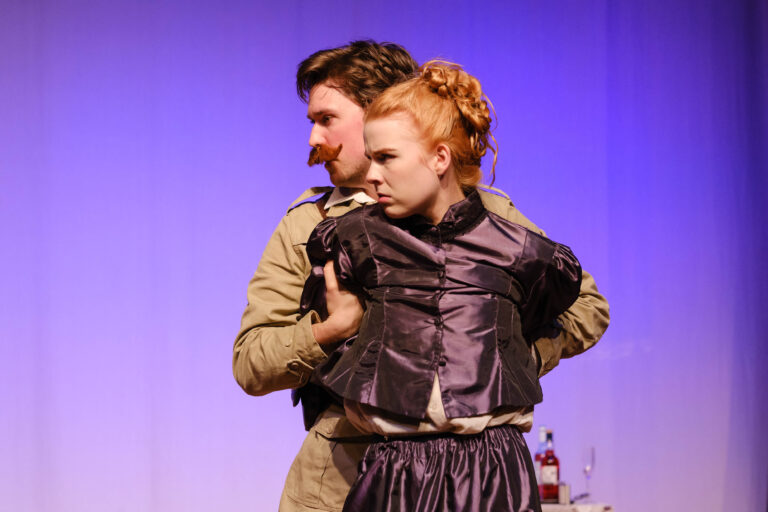
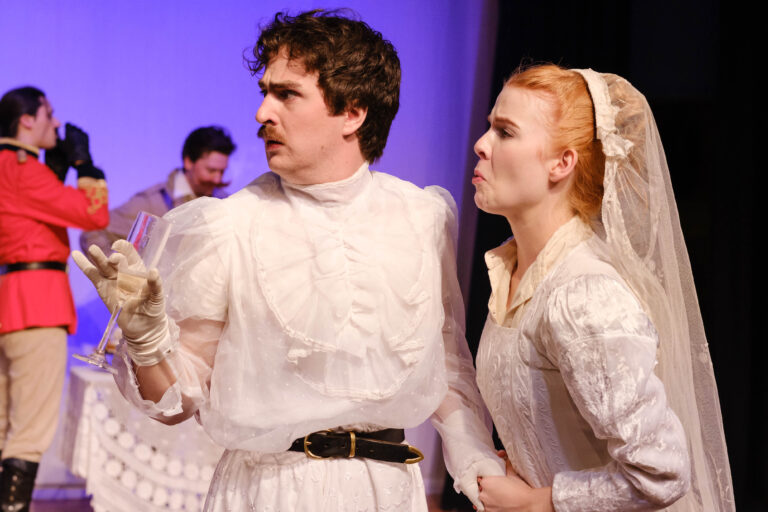
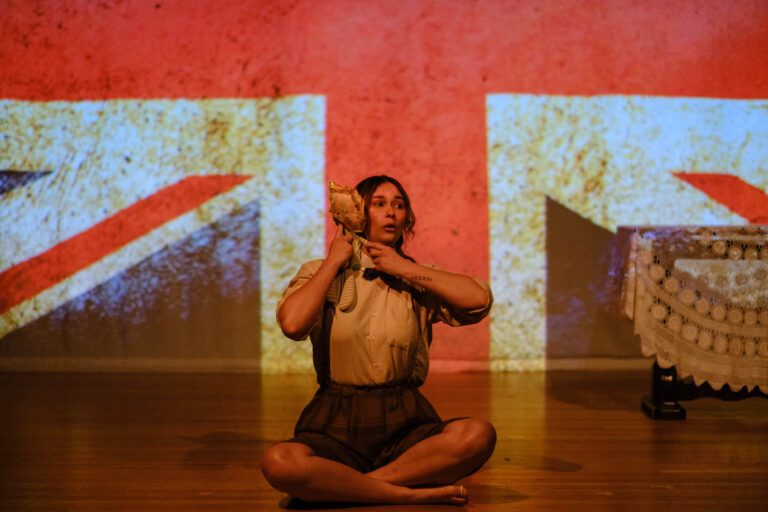
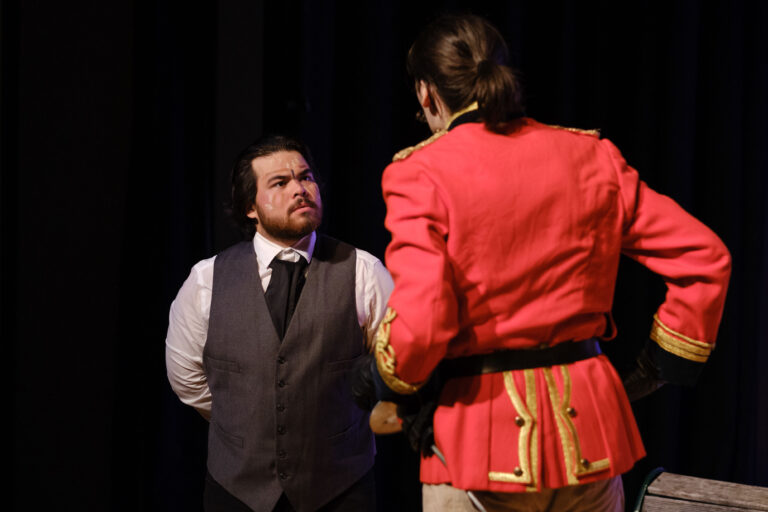
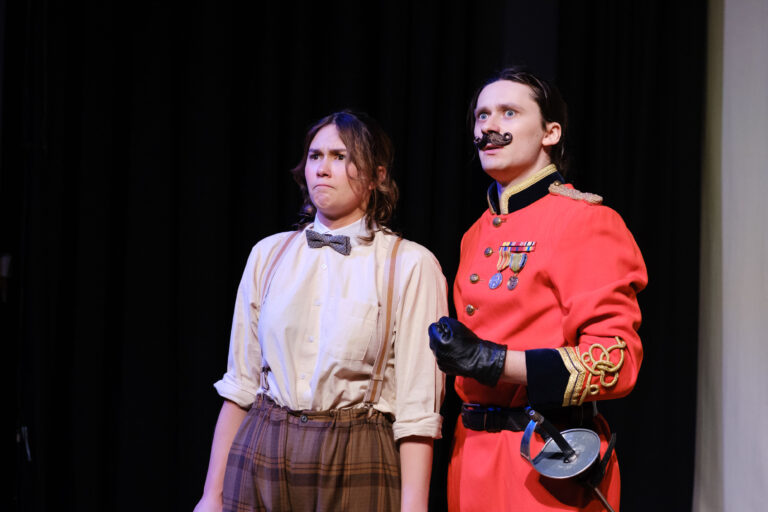
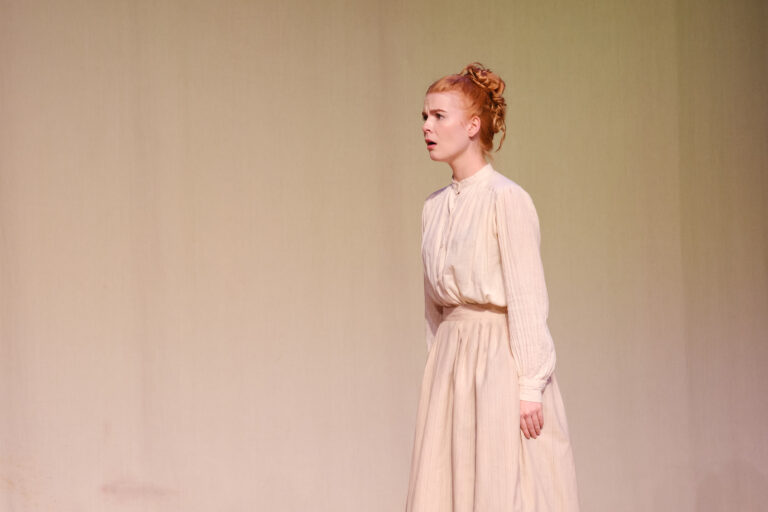
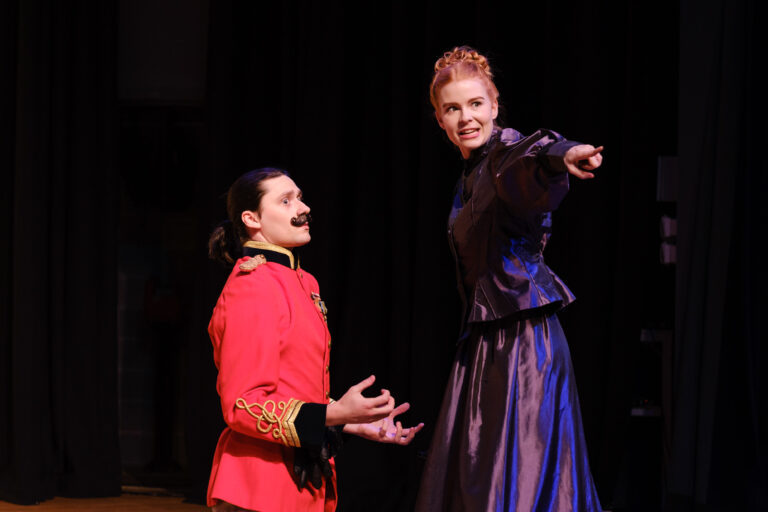
Program Notes
Caryl Churchill is an iconic figure in world theatre and is considered by many the greatest living playwright. She has, since the early 1970s, made – and is still making – a huge contribution to the stage. Her more than 40 plays are brilliantly innovative explorations of the possibilities of theatrical form and content, and each play offers a unique invitation to collaborate in that exploration.
Cloud 9 explores themes of power, sex, gender, and identity. It has two acts: one set in Victorian colonial Africa, the other in modern England – although the characters have only aged 25 years. Each act, and time, echoes the other, reflects the other; inviting audiences to consider what’s changed and what hasn’t. It’s part farce, part sitcom, with the playwright’s darker, contemporary take on those genres. When it arrived in 1979 it was a big success for its daring, inventiveness and feminist perspective influencing succeeding generations in what could be in plays, and how.
When I first met with the cast, I asked them if they thought the play had dated. The consensus was: while some of the language has changed, its stories are still poignant and its themes relevant. How we negotiate power, sex, gender, and identity now are only relatively advanced from the 1970s – we’re not there yet. The story these characters tell represent all our stories to a more or lesser degree – the struggle to be their true selves in the face of society’s expectations and prejudices.
It’s been a pleasure to see this group work together tenaciously, throughout what was sometimes a disrupted rehearsal process, with dedication, curiosity and energy to bring this large and complex play to the stage.
